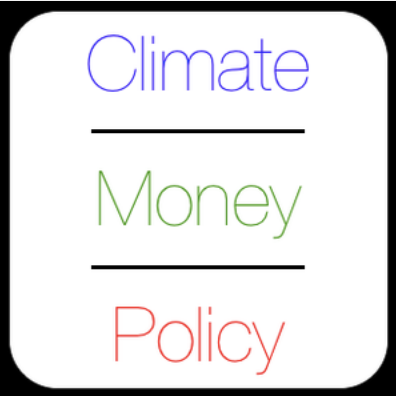The Preparation
I had about three months to prepare and it went by in a blink. I spent the first month framing out what I wanted to say and what was important. It became obvious early on that the world didn't need another talk about the evidence and veracity of the science. Moreover I'm not a scientist and I felt it would be in error to try and play one. At the same time it didn't make sense to talk about the politics. I'm comfortable there but what would the take-away be? Vote different? That wasn't going to fly. At some point I realized that what I really need to was to leapfrog the whole argument. This talk had to be about how the world wasn't stuck in the debate. That to call global warming a debate at all was to ignore the leaders in finance and industry who've been working to avert or insulate climate-risks. Pulling back the curtain and showing the audience how business and government were already charging fees related to absorbing the cost of climate change; that's where this talk had to go.
Challenge 1: The Family Budget
This talk wouldn't work if I didn't have their attention. Unfortunately, climate related costs tend to be acute (and subject to argument), not systemic. We can easily calculate the cost of extreme events like a hurricane but no single hurricane can be blamed on climate change. Conversely, it's difficult to factor the costs of a greater humidity but it's clear that they exist and that global warming is to blame. I needed to find some examples that were systemic and measurable. Weeks went by before by favorite emerged: Heroine. It turns out that Afghanistan makes pretty much all of the world's heroine and Afghanistan has had systemic drought for pretty much all of the century so far. Perfect. A robust drug war come with robust metrics and it turns out that the audience for TEDxNavesink was drawn from two counties with a combined 1800 man anti-heroine task force. That made it easy to calculate the costs to a family budget. Once I had the lead the next two followed in quick order.
Challenge 2: Follow the Leaders
If I could prove that climate change was already a concern for the average budget (family and business) it would be an easy pivot to industries that are taking the issue seriously. This middle third of the talk was by far the easiest part but the most difficult to edit. So many companies are working hard to mitigate climate impacts that I didn't lack for evidence. Unfortunately, there just aren't a lot that look at climate change as a core business risk and publish KPIs that relate to exposure. I realized that talking too much about any company was a mistake. Industry is just too diverse. Business too varied. Ultimately there were too many variables for any single story to be evidentiary.
Except one. Wal-mart. There are a lot of reasons people poke at Wal-mart but you have to admit, they're a goliath. They became the only logical choice.
Challenge 3: The Ask
By the point that I have most of the talk lined out I've been fiddling with an ending for weeks. I've had this sneaking suspicion that people need to be let off the hook for inaction. Let's face it, climate change has been an issue in the background for over fifty years now. No one has a legitimate excuse for not having taken action by now and it's had to turn around publicly and admit you were wrong. I felt I needed to acknowledge that. I wanted to give people a pass for their inaction and better marching orders on what to do now. It was obvious to me that planting trees and voting different just aren't the most useful asks of an audience. Asking them to be selfish though... that could work.
My thinking was that given all of the systemic risks, acting on climate change isn't just a moral imperative, it's deeply selfish. Selfish in a good way. Selfish in the same way that you'd steal food to feed your family. So in the end and with only a couple weeks left to practice it became clear that the ask for the talk was simple: Question risky behavior. Separate yourself from the masses who more and more seems to ask less and less of one another. Ask more from those around you. Ask more from your accountants and attorneys, ask more from your bankers and brokers, ask more from your partners, suppliers and advisors. Ask them all, "What is my exposure to climate risks? How are we planning for a world where climate increases the uncertainly of our business?" It's the questioning that makes all the difference.















